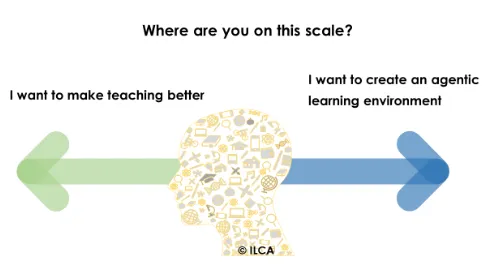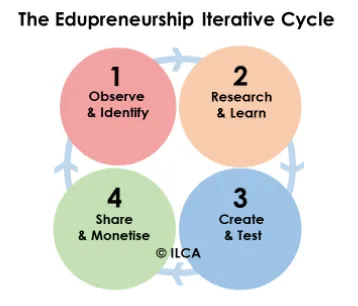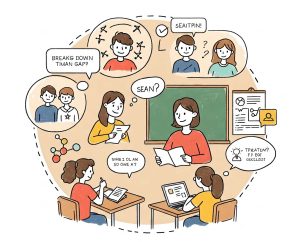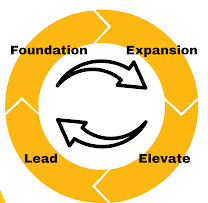Edupreneurs; those educators who push boundaries and take the risks others aren’t willing to take. They want to be a part of something bigger than themselves. For the edupreneur, it’s not about the status quo, whether that’s inside or outside of the school. They will funnel their passion and purpose into an idea or new business that will improve education as we know it.
Spend a little time exploring online, and you’ll find that edupreneurs are disrupting the education paradigm. They are changing special education. They are embarking on educational philanthropy projects. The movement even has its own Wikiversity entry.
Source: https://educatordynamics.com/content/what-is-an-edupreneur
Edupreneurs are usually mission-driven and live for bringing to light positive impact. They can be found building new education organizations and businesses, developing the latest edtech tools, running new schools, and giving keynote speeches around the world. They lead with a 21st-century education mindset and are known globally inside and outside of the classroom.
What areas does it cover?
…teaching abroad, coaching, online learning, administration, STEM (science, technology, engineering and Mathematics), tutoring, career education, after school programs or technical solutions,…
it involves understanding the education sector culture coupled with a strong desire to bring about change in this space”
https://educationkey.com/index.php/2019/04/02/education-entrepreneur/
Great reasoning for why to become an edupreneur:
https://elearningindustry.com/entrepreneur-to-edupreneur-14-reasons-make-shift
What we can conclude is this:
Edupreneurship is a lucrative undertaking, focused on making lives better through handling the educational framework through a business mindset, utilizing social networks, and technology advancement to create a voice to be heard.
Organic professional development comes at a cost: be prepared to talk to many, learn from many and ditch many of your previous ideas to make way for the new.
Empower, look outside of the current education box and, as we all know: be the change you want to see in the world (apparently not a Ghandi quote).
Amidst a paradigm shift in learning, language learning is also affected in that learners are willing to take on more active roles, take ownership of their learning and engage at various levels, particularly teenagers and adults. Let them.
Questions to ask yourself to help communicate more like an edupreneur, rather than a teacher suffering from burnout and financial issues ☺:
Do you wish to pursue a career around this or is it just a side job/summer occupation?
What need / pain points can you identify that you may have a solution for?
Who is your target market?
What communities, networks can your work affect?
How can you support using your strengths?
What modern teaching practices are you supporting with your idea?
Is your theoretical background on firm foundations?
How do you plan to share publicly and scale your work and contributions?
Who are you helping: the teacher, the learner, the school as an organization or the parents?
Where is technology for you?
What is unique about your message?
How do you communicate about success and outcomes you have achieved?

Steps to follow and seek guidance with:

We hope this short summary has brought about some clarification and has new ideas circling around in your head.
Written by Gabriella Kovács PCC





